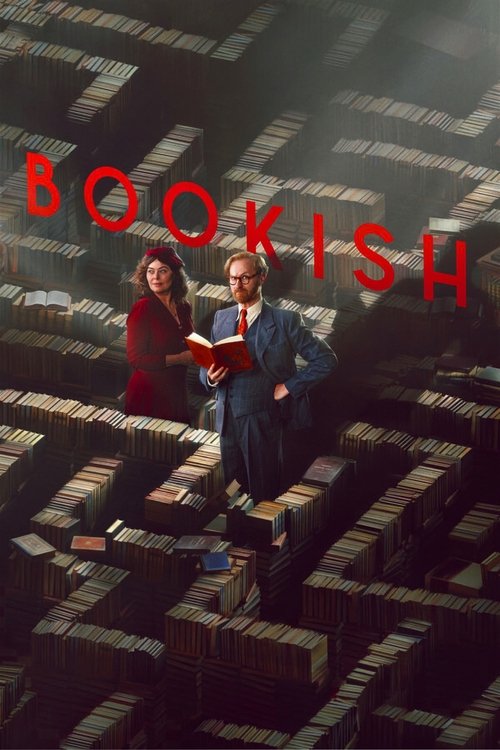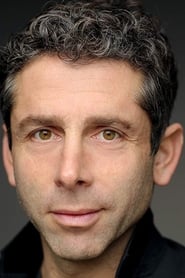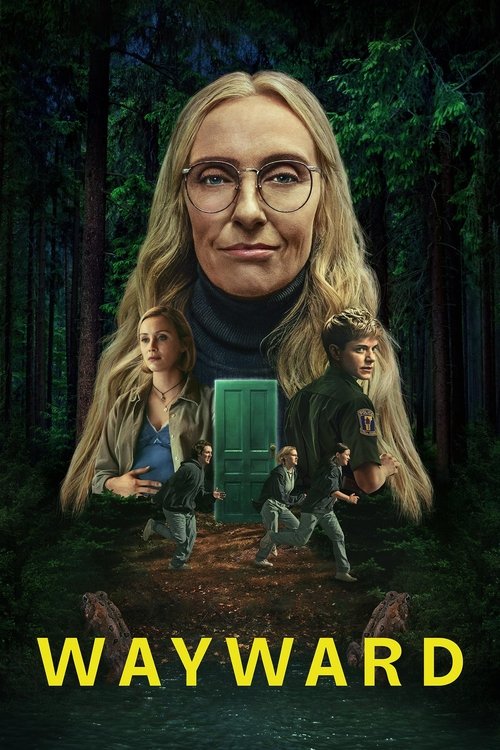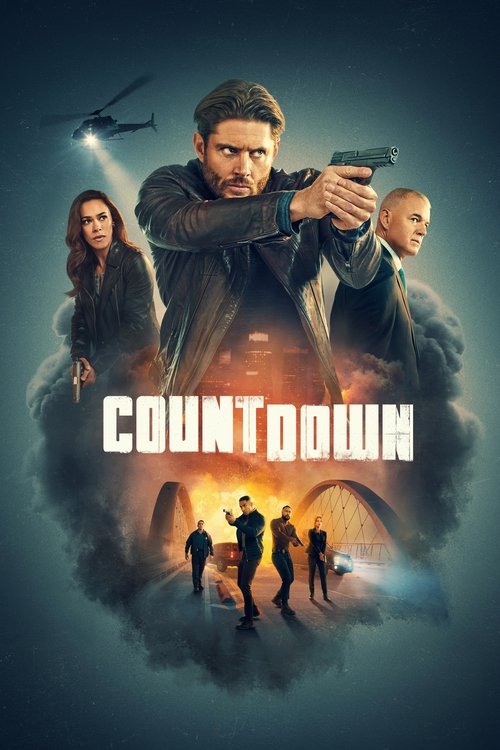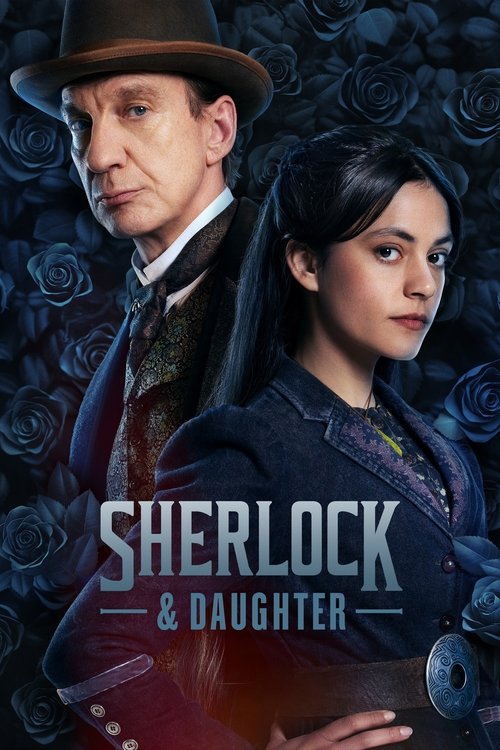
Ask Your Own Question
What is the plot?
The first sequence opens in post-war London, 1946. Gabriel Book, an antiquarian bookshop owner, lives above his shop with his wife Trottie. Gabriel is introduced as a scholarly, eccentric man with a vast knowledge of literature and a curious side hobby: assisting the local police with complex crimes. The police are often irritated by his involvement, but Gabriel insists he has a letter from Churchill authorizing his participation. Gabriel nurtures a group of troubled assistants who help him run the shop and support his investigations.
The initial case begins when a cluster of skeletons is discovered in a nearby bomb crater. The police initially dismiss the remains as plague victims, but Gabriel is unconvinced. He visits the site, carefully examining the bones and surrounding area, noting inconsistencies with the official explanation. His observations lead him to suspect foul play rather than natural causes.
Shortly after, a local pharmacist is found dead, with the police ruling it a suicide. Gabriel, however, notices signs that suggest murder. He visits the pharmacist's shop and home, looking for clues. Gabriel's investigation reveals that the pharmacist had been involved in illicit activities, possibly black market dealings, which could have led to his death. Gabriel shares his findings with Inspector Bliss, who is skeptical but allows Gabriel to continue his inquiries.
Gabriel's wife Trottie supports him throughout, managing the bookshop and their household. She is warm and friendly but sometimes frustrated by Gabriel's obsession with his cases. Meanwhile, Gabriel's assistants, including Jack and Nora, provide informal protection and help gather information from the neighborhood. Nora, who lives across the road, is particularly knowledgeable about local gossip and the people involved.
Gabriel's investigation deepens when he uncovers a connection between the skeletons and the pharmacist's death. He discovers that the skeletons are not plague victims but victims of a wartime crime covered up by authorities. Gabriel pieces together that the pharmacist was silenced because he knew too much about this cover-up.
In a tense confrontation, Gabriel confronts a suspect linked to the pharmacist's death. The suspect initially denies involvement but eventually breaks down under Gabriel's relentless questioning. Gabriel carefully documents the confession and evidence, preparing to present it to the police.
The climax involves Gabriel and Inspector Bliss working together to expose the truth behind the skeletons and the pharmacist's murder. They coordinate a raid on a location tied to the wartime cover-up, uncovering further evidence and arresting those responsible.
The season ends with Gabriel reflecting on the case's resolution in his bookshop. He is satisfied with the justice served but aware that many secrets remain hidden in post-war London. Trottie and the assistants gather around him, ready for the next mystery. Gabriel's unique blend of literary knowledge and detective work has proven effective, setting the stage for future investigations.
What is the ending?
The ending of Bookish Season 1 concludes with a locked-room murder mystery at the Walsingham Hotel, where Trottie Book is involved in a poisoning case. Gabriel Book and his circle of allies unravel the mystery, culminating in a classic Poirot-style reveal. The season closes with emotional flashbacks revealing Book's lost love, Felix, and the fates of the main characters are tied to the resolution of the crime and their personal journeys.
In the final episodes of Bookish Season 1, the story unfolds in the elegant yet tense setting of the Walsingham Hotel. Trottie Book, Gabriel Book's wife, is out for a night of mischief when she encounters a smarmy army captain at the hotel bar. The captain is suddenly poisoned, sparking a locked-room style murder investigation. The suspects include Trottie herself, the captain's embittered wife, two bartenders with suspicious behavior, a young revolutionary named Eadie Rattle, two exiled Balkan princesses, and Jack, who has recently left Gabriel's employ to work as a bodyguard for the royal siblings.
Gabriel Book, the antiquarian bookshop owner and amateur detective, uses his vast knowledge and resources to piece together the clues. The investigation is marked by a series of tense interrogations and revelations, each suspect's motives and alibis examined in detail. The narrative builds to a climactic reveal where the true murderer is exposed in a manner reminiscent of classic detective fiction, with Gabriel orchestrating the denouement.
Interspersed with the murder mystery are poignant flashbacks to Gabriel's past, particularly his relationship with Felix, his lost love from pre-war Germany. These scenes are rendered with emotional restraint, showing their final farewell on a train platform, underscoring the personal losses that shape Gabriel's character.
As the mystery resolves, the fates of the main characters become clear:
-
Gabriel Book remains the central figure, his intellect and compassion affirmed by his success in solving the case. His personal grief lingers but is given a measure of closure through the flashbacks.
-
Trottie Book is cleared of suspicion, her role in the evening's events highlighting her complexity and resilience.
-
Jack, having left Gabriel's employ, is now firmly established in his new role as a bodyguard, indicating a shift in his personal trajectory.
-
Other suspects, including the revolutionary Eadie Rattle and the Balkan princesses, are revealed to have motives but are ultimately exonerated or implicated according to the final solution.
The season ends on a note that balances the resolution of the crime with the emotional depth of the characters, particularly Gabriel's ongoing struggle with loss and his commitment to those around him. The final scenes emphasize the themes of loyalty, memory, and the search for justice in post-war London.
Is there a post-credit scene?
The TV show "Bookish," season 1 (2025), does not have any publicly documented post-credit scenes. Available sources, including detailed episode summaries, cast and crew information, and reviews, do not mention or describe any post-credit scenes for this series.
Given the nature of the show--a period detective drama set in post-war London focusing on Gabriel Book and his antiquarian bookshop--any post-credit scene would likely be noted by reviewers or fans, but no such information is found in the current data. Therefore, it can be concluded that season 1 of "Bookish" does not include a post-credit scene.
What is the significance of Jack Blunt's character in the first novella and how does he relate to Gabriel Book?
Jack Blunt is an ex-convict recently released from prison who arrives at Gabriel Book's antiquarian bookshop seeking a job, despite never having met Gabriel before. His perspective as someone who missed much of World War II due to imprisonment provides a unique outsider view on postwar London and its changes. His presence at the shop initiates the first mystery and sets up the recurring characters and dynamics in the series.
How does Gabriel Book assist the police in solving crimes in the series?
Gabriel Book uses his vast collection of books and his literary knowledge to help Scotland Yard solve complex cases in 1946 London. He often arrives at crime scenes ahead of the police, offering insights and explanations that frustrate the official investigators. He claims to have 'a letter from Churchill' to justify his involvement, indicating a mysterious official sanction for his amateur sleuthing.
What is the nature of Gabriel Book's relationship with his wife Trottie and his assistants?
Gabriel lives above his bookshop with his wife Trottie, who is described as disarmingly friendly. He also nurtures a group of lovable yet troubled assistants, providing them with informal protection and guidance. This household forms a close-knit, somewhat unconventional family unit that supports Gabriel both personally and in his investigative work.
What are the key crimes or mysteries introduced in the first two episodes of Bookish?
The first two episodes introduce a cluster of skeletons found in a bomb crater, initially thought to be plague victims but later suspected to be something more sinister. Additionally, a local pharmacist's death, ruled a suicide by the police, is revealed to be suspicious. These cases set the tone for the series' blend of postwar atmosphere and classic amateur detective work.
Who are some of the main supporting characters involved in the investigations alongside Gabriel Book?
Key supporting characters include Inspector Bliss and Sergeant Morris from Scotland Yard, who often find Gabriel's involvement irritating but necessary. Other notable characters are Nora, a member of Gabriel's circle, and various guest characters such as Eric Wellbeloved, Sandra Dare, and Felix, who appear throughout the series contributing to different cases and subplots.
Is this family friendly?
The TV show Bookish (Season 1, 2025) is generally considered a cozy crime drama with a warm, witty, and atmospheric tone set in post-war 1946 London. It is designed to be clever and twisty without being overly dark or gritty, aligning with the cozy mystery genre known for being more family-friendly than traditional crime dramas.
However, as a crime drama involving murder investigations, it may contain some scenes or themes that could be potentially upsetting or objectionable for children or very sensitive viewers. These might include:
- Depictions or references to murder and crime investigations, including some suspenseful or tense moments.
- Mild violence or crime-related content typical of detective dramas, though not excessively graphic or brutal.
- Some thematic elements related to post-war hardship and societal issues, which might be emotionally heavy but are handled with a warm and nostalgic tone.
- Occasional moments of tension or danger as the protagonist and his group solve mysteries.
There is no indication from available sources that Bookish contains explicit content, strong language, or graphic violence that would make it unsuitable for older children or family viewing with parental guidance. The show's style is more cerebral and character-driven, focusing on puzzles and relationships rather than shock or horror.
In summary, Bookish Season 1 is mostly family-friendly for older children and sensitive viewers who can handle mild crime drama themes, but very young children or those highly sensitive to crime-related content might find some scenes unsettling. No major objectionable content or spoilers are noted in the available information.

